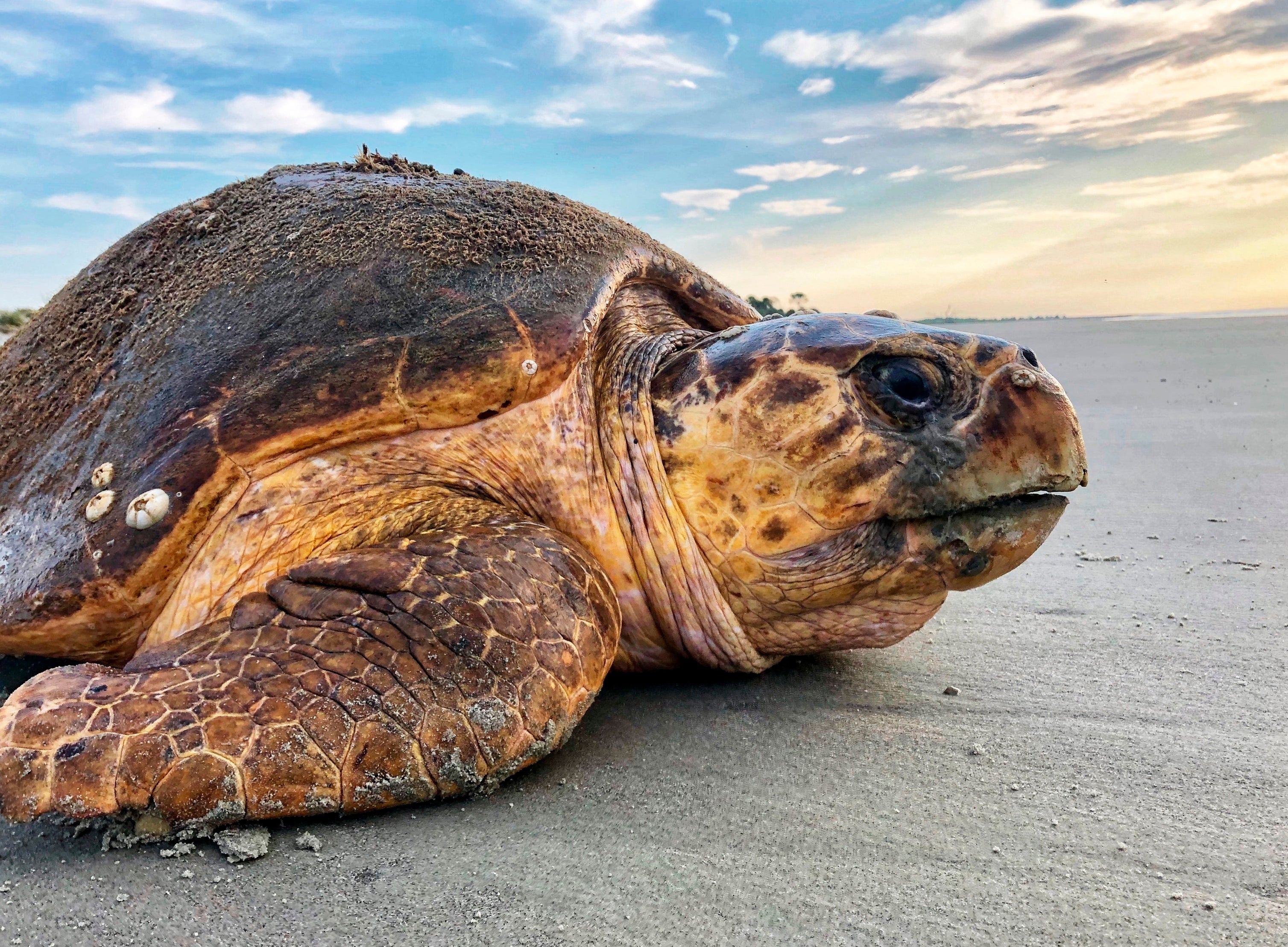Suit: US ship canal dredging in summer threatens sea turtles
A conservation group is suing in federal court over a U.S. agency's timeline for dredging a Georgia shipping channel, saying dredging in the summertime would threaten rare sea turtles

Your support helps us to tell the story
From reproductive rights to climate change to Big Tech, The Independent is on the ground when the story is developing. Whether it's investigating the financials of Elon Musk's pro-Trump PAC or producing our latest documentary, 'The A Word', which shines a light on the American women fighting for reproductive rights, we know how important it is to parse out the facts from the messaging.
At such a critical moment in US history, we need reporters on the ground. Your donation allows us to keep sending journalists to speak to both sides of the story.
The Independent is trusted by Americans across the entire political spectrum. And unlike many other quality news outlets, we choose not to lock Americans out of our reporting and analysis with paywalls. We believe quality journalism should be available to everyone, paid for by those who can afford it.
Your support makes all the difference.A conservation group has filed suit over a U.S. agency's planned timeframe for dredging a Georgia coast shipping channel, arguing that using powerful pumps to suck up harbor sediments in summertime would endanger rare sea turtles.
For two years, environmentalists have battled an effort by the Army Corps of Engineers to end a policy that for three decades limited to winter months the dredging of accumulated sand and mud from harbors in Georgia and the Carolinas.
The seasonal limits have been in place since 1991. They are intended to protect sea turtles from being killed and maimed by the vacuum-like suction pumps of hopper dredges during the warmer months when female turtles lay their eggs on Southern beaches. Conservationists credit that policy with helping threatened and endangered turtle species begin a fragile rebound.
Giant loggerhead sea turtles, protected as a federally threatened species, nest during the spring and summer months on beaches from North Carolina to Florida. Smaller numbers of endangered green and Kemp’s ridley sea turtles lay eggs in the region as well.
A federal judge last year temporarily blocked the Army Corps from conducting year-round dredging in Georgia. In September, a different judge halted a similar plan in North Carolina. Both judges ruled that the agency failed to adequately assess potential dangers to legally protected sea turtle species.
Now the issue is back in court. One Hundred Miles, a coastal Georgia conservation group, filed suit Thursday in U.S. District Court in Savannah. The complaint says the Army Corps is now preparing to dredge in the summer of 2023 in the shipping channel leading to the Georgia port city of Brunswick.
The move comes after the Army Corps published an environmental assessment in May that concluded ending seasonal dredging limits in the Brunswick harbor would have no significant impact on sea turtles.
“We are fighting the same battles again, but the message remains the same: Hopper dredging and sea turtle nesting season just don’t mix,” said Catherine Ridley of the conservation group One Hundred Miles. “If you come in right when we have reproducing females in those very waters, they are sitting ducks."
The lawsuit asks a judge to again stop the Army Corps from ending seasonal dredging limits without first performing a more rigorous environmental impact study.
Kimberly Wintrich, an Army Corps spokeswoman in Atlanta, said the agency doesn't comment on pending litigation. She also declined to confirm whether the Army Corps plans summer dredging in Brunswick.
The lawsuit cites a contract the Army Corps awarded in September for a private company to dredge harbors over the next year in Wilmington, North Carolina; Charleston, South Carolina; and Savannah and Brunswick in Georgia. A bid solicitation posted in July specified that dredging at each location would take place during the traditional seasonal window between December and March.
However, the document also listed an “optional bid item” for additional dredging in Brunswick to be conducted between May and August 2023. That falls during the nesting season when sea turtles are abundant in Georgia waters — a period previously off-limits to dredging.
That provision triggered the conservation group's court challenge.
The Army Corps is in charge of keeping shipping channels clear of accumulated sediments to ensure safe passage of large vessels. Seaports in Georgia and neighboring states reported record growth in 2022 amid soaring consumer demand and frequent traffic jams with cargo ships waiting at sea.
The agency has sought to scrap seasonal limits on dredging in the Southern Atlantic since the National Marine Fisheries Service concluded in 2020 that sea turtles protected by the Endangered Species Act can likely endure roughly 150 deaths anticipated annually from year-round dredging.
Army Corps officials have said that seasonal restrictions make it difficult to compete for a limited number of contractors. They have also argued that seasonal windows timed to protect sea turtles ignore other species such as critically endangered North Atlantic right whales, which frequent the same waters during winter.
The latest Georgia case has been assigned to U.S. District Judge R. Stan Baker, who in May 2021 halted the Army Corps' summer dredging plans for Brunswick.
In addition to ruling that the Army Corps needed to perform an environmental assessment, which the agency has since done, the judge cited the longevity of the South's seasonal limits as evidence that year-round dredging could imperil a large number of sea turtles.
Baker said from the bench in May 2021: “Frankly it’s a stretch to believe the Corps would have abstained from spring and summer dredging in the area for decades if it did not believe there was a significant danger to loggerhead sea turtles during that time.”